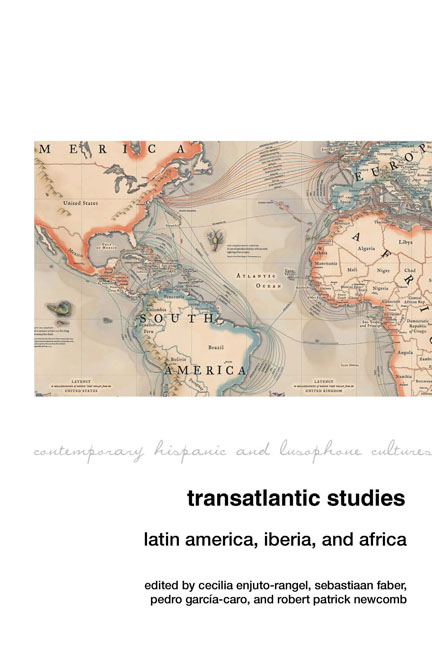Book contents
- Frontmatter
- Contents
- Introduction: Transatlantic Studies: Staking Out the Field
- Transatlantic Methodologies
- Transatlantic Linguistic Debates
- Transatlantic Displacement
- Transatlantic Memory
- Transatlantic Postcolonial Affinities
- Transatlantic Influence
- Epilogue: The Futureâif There Is OneâIs Transatlantic
- Index
21 - Rethinking Spanish Civil War Exile: The Curious Case of the Catalans
- Frontmatter
- Contents
- Introduction: Transatlantic Studies: Staking Out the Field
- Transatlantic Methodologies
- Transatlantic Linguistic Debates
- Transatlantic Displacement
- Transatlantic Memory
- Transatlantic Postcolonial Affinities
- Transatlantic Influence
- Epilogue: The Futureâif There Is OneâIs Transatlantic
- Index
Summary
Exiled writers suffer two curses. The first is the notion that the only literature that is authentic to, and relevant for, a certain space is the literature produced within that space by people who can claim a natural relation to it. We could call this an ideology of cultural organicism. If German, French, or Uruguayan literature are defined, by default, as the literature written in Germany, France, or Uruguay—in the national language, by writers born, and living, in those countries—then exiles are condemned to live in limbo. The second curse that plagues exiled writers is a loss of institutional power. Because of their displacement from their national community, they are generally excluded from the process that consecrates texts and authors as being authentic and relevant to that community. They cannot weigh in on that process and, much less, be eligible for consecration. This, too, is why they often end up left out of official literary histories (Faber 2017: 432).
But exiles generally don't go down without a struggle. In the decades following the Spanish Civil War of 1936–39, the attempt to continue to be seen, read, and institutionalized as Spanish writers consumed a good part of the energy of the intellectuals who left their country as a result of the war and the dictatorship that followed it. In addition to claiming their place in the national canon, these writers also insisted on their right to shape that canon—disputing the iron grip that the Franco regime held on the narrative of official Spanish literary history. Identity was an important weapon in this struggle for cultural hegemony, although different exiles wielded it in different ways (Faber 2002). Some claimed for their work some kind of national essence—presenting themselves as more authentically Spanish than the writers working under, or for, the dictatorship in Spain. Others tried to subvert the connection between organicity and cultural value, claiming the very experience of uprootedness as a source of superiority. For this latter group, exile became a form of emancipation and enlightenment.
This idealized notion of displacement—no less romantic, in the end, than the ideology of organicism—lives on in some approaches to Exile Studies.
- Type
- Chapter
- Information
- Transatlantic StudiesLatin America, Iberia, and Africa, pp. 250 - 259Publisher: Liverpool University PressPrint publication year: 2019

